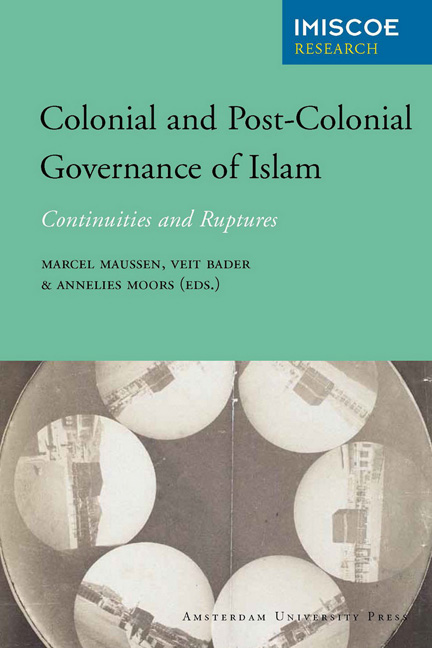6 - The Idea of a Muslim Community: British India, 1857-1906
Published online by Cambridge University Press: 05 February 2021
Summary
Introduction
The Muslim ‘community’ emerged in India during the nineteenth century as a direct consequence of colonial rule. With the destruction of royal and aristocratic forms of power in British territory, these indigenous sources of profane authority were displaced by religious ones, which for the first time stood free of the formers’ tutelage (Devji 2007a). In other words, it was the Muslim community's separation from political authority that made it a religious entity in the modern sense. Yet by freeing Islam of such profane elements, the secular politics of colonialism freed it from all inherited forms of authority, making the Muslim community into a site of competition between different groups of divines and laymen. The birth of this new collectivity was signalled by its adoption of a name unknown to history, with Muslims in the nineteenth century calling themselves a qawm, an Arabic word meaning something like ‘tribe’ or ‘people’ that had rarely been used to describe religious groups in the past (Devji 2007b). Eventually, this word would become an equivalent for the equally novel term ‘nation’ in South Asia. Notwithstanding their reference to ties of kith and kin in other contexts, neither community nor qawm were names used to describe local forms of Muslim belonging, being deployed instead to represent the disparate, dispersed and merely demographic collection of Queen Victoria's Muslim subjects.
While its demographic boundaries may have been mapped by the colonial census and its juridical borders by Anglo-Muhammadan law, the Muslim community was occupied by Indians themselves in different ways. Indeed, it soon became the site of great struggles between Muslim groups in northern India, primarily Sunni clerics and their relatives among the laity. Both these groups belonged to the same class of minor landholders, administrators and bureaucrats, all Urdu-speaking, who had been liberated by colonial rule from the kings and nobles they had once served. Fully conscious of their independence, these men called themselves ‘sharif’ (‘wellborn’), and set out to recast Islam in their own image, thus lending the qawm some substance as an ethnic category.
- Type
- Chapter
- Information
- Colonial and Post-Colonial Governance of IslamContinuities and Ruptures, pp. 111 - 132Publisher: Amsterdam University PressPrint publication year: 2012

